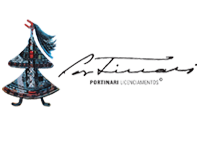General Info
Birth in 1922, the year of Semana de Arte Moderna; keen interest in painting since childhood; the Faculdade de Direito at the Pontifícia Universidade Católica do Rio de Janeiro/PUC-Rio; quits law practice and takes up painting full time; social concern in Portinari's art; meets Portinari in 1946 through Ribeiro da Costa; Portinari's sadness at the end of his life; Rockwell Kent's book "Portinari, his life and art"; friendship with Portinari; Portinari's modesty in showing his paintings; publishes book of poetry; neatness and cleanliness of Portinari's studio; the magnitude of Brazil as seen through Portinari's paintings; Portinari's stories; the death of his mother and father makes José Paulo return to Christianity; Portinari's Christianity depicted in his work; social consciousness prompts Portinari to join the Communist Party in an attempt to serve the Brazilian people; the humanitarian and social function of the artist; despising passing artistic phases; unfounded criticism; the synthesis between painter-canvas; the joy of observing Portinari paint; comparing Portinari to Goya; Portinari uses support of the Estado Novo in order to show his concern about Brazil's misery; the differences between Portinari and Di Cavalcanti; Segall; Pancetti; exhibition in Mexico; Portinari's talent for mural painting; the influence of Italian painters on Portinari's painting; Ucello; Piero della Francesca; legal counsel given to Portinari regarding the United Nations/UN contract; Portinari illustrates José Paulo's book, "Raízes"; correspondence with Portinari; Portinari's poems; the panel "Tiradentes"; Portinari founder of the Brazilian style of painting; family as the nucleus of Portinari's life; the poem written on the day of Portinari's funeral; the lucidity in Portinari's art; Carlos Drummond de Andrade; Portinari's relationship with his son João Candido; rivalry between artists from Rio and São Paulo; Portinari's solitude following his separation from Maria; the "Coluna Prestes"; the panel "Discovery of Brazil"; eclecticism in Portinari's art; Carlos Scliar; the difficulty in obtaining art books in Brazil during the war; meeting with Alberto Camus; class collegues at PUC-Rio.
























































